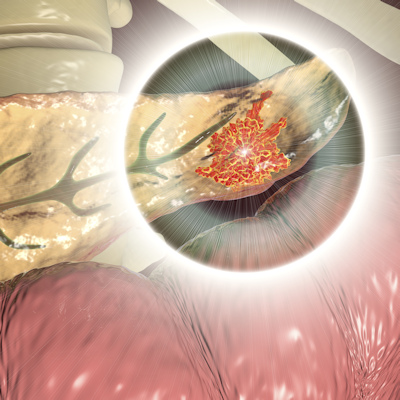November 17, 2022 -- New research shows bacteria infiltrate tumors and could help them progress and spread. Related, scientists from the same institution reveal a link between oral health and cancer.
Researchers from the Fred Hutchinson Cancer Center in Seattle published two papers, one in Cell Reports (November 15, 2022) and one in Nature (November 16, 2022) focusing on the oral bacterium Fusobacterium nucleatum, which has been linked to colorectal cancer.
They learned certain tumor regions are heavily colonized by bacteria and they differ functionally from regions that do not harbor bacteria. Combining observations from tumors with lab-based experiments and small-molecule drug screens shows that F. nucleatum may shape conditions in tumors to keep them safe from immune attack and help them spread through the body. The researchers posit some cancer therapeutics work because they not only target tumor cells, but also the bacteria that are supporting them.
It's not only F. nucleatum but other microbes -- including Escherichia coli -- may render an antimicrobicidal and chemotherapeutic drug ineffective, which could shield both the tumor and F. nucleatum from treatment. The bacteria is associated not only with colorectal cancer, but also breast, pancreatic, lung cancer, and others. These cancers harbor microbial communities and reveal that tumor microbiomes may shape development, progression, and response to treatment, according to the scientists.
Using spatial transcriptomics, the team found a range of bacterial species living within oral and colorectal cancers, but they weren't spread evenly. Regions colonized by bacteria were highly immune suppressive and had fewer cancer-killing T cells than other areas. Areas with T cells near bacteria also had an upregulation of immune checkpoint proteins.
With the help of colorectal cancer spheroids, the scientists learned neutrophils spread through spheroids without bacteria. But in those with bacteria, neutrophils migrated to the center of the spheroid and became trapped.
They also learned tumor cells in the spheroids moved differently when bacteria were present; instead of en masse, cancer epithelial cells migrated as single cells, bringing bacteria with them. Tumor cells infected with bacteria ramped up genes associated with cancer progression and metastasis, they found. In oral tumor samples, bacteria preferentially infected cancer epithelial cells and specific immune cells within patients' tumors. These infected tumor cells had increased DNA damage signaling and this supports the finding that bacteria have a direct role in shaping these micro-niche regions.
Intra-tumoral microbes are not innocent bystanders during disease progression and the microbiota should be taken into consideration when thinking about optimal cancer treatments, the researchers said.
Related to this, microbes traditionally associated with oral inflammatory disease are found in association with extra-oral and gastrointestinal cancers, which highlights the oral cavity as a breeding ground for pathogenic onco-microbes.
It's possible that inflammation in the mouth, in the form of periodontal or endodontic disease, could be selecting for and encouraging the outgrowth of bacteria that grow in adverse conditions and are capable of evading immune attack, according to the researchers.
Future studies will explore the possibility of making tumors more responsive to immunotherapy or chemotherapy by manipulating the microbiome and designing microbiome-modulating therapeutics that will prevent and treat cancer, the scientists said.
Copyright © 2022 scienceboard.net









